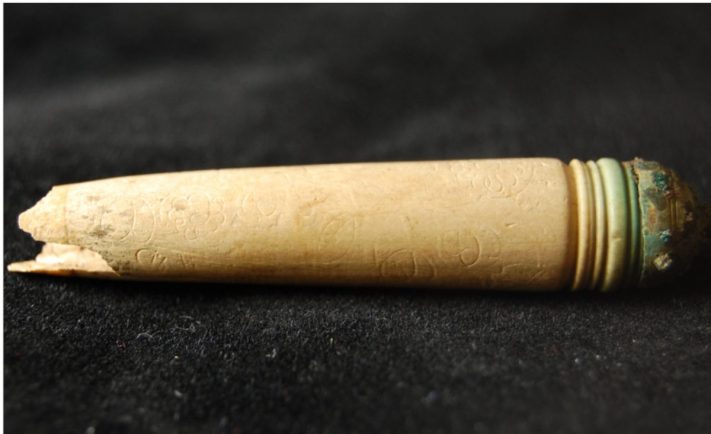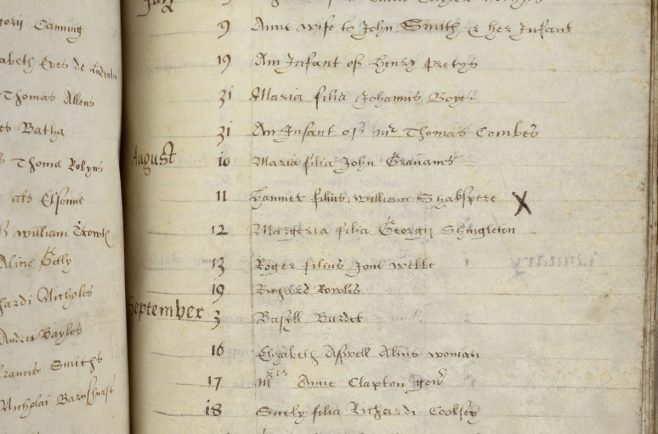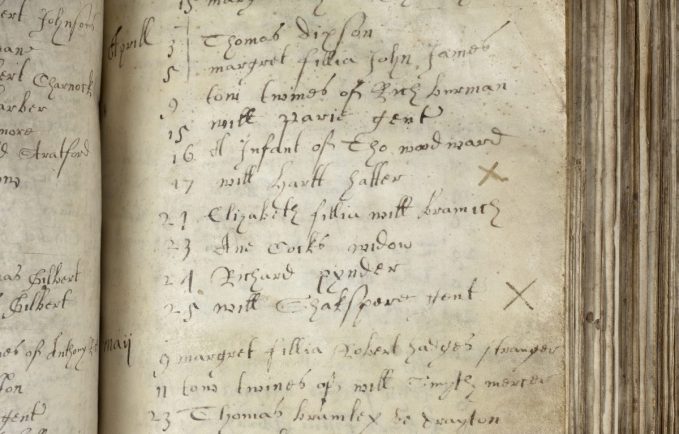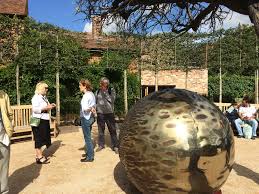A SHAKESPEARE expert has separated fact from fiction after consulting on new film All is True which recounts the playwright’s final years.
Dr Paul Edmondson, head of research at the Shakespeare Birthplace Trust, was asked by director Sir Kenneth Branagh to advise on the script, which focuses on his family life in the years to his death following the fire which devastated the Globe Theatre in London in 1613.
The film, which opens next month, highlights Shakespeare return to Stratford and his struggle to come to terms with the death of his only son Hamnet and to face his troubled marriage.
Dr Edmondson, and fellow consultant, theatre and film expert Russell Jackson, were on standby to deal with queries during filming.
He said: “Sir Kenneth Branagh’s new film arises out of his life-long passion for Shakespeare. From his early days of hitchhiking to Stratford-upon-Avon, Sir Kenneth’s love of Shakespeare – and it is a deep honest-to-God and open love – has infused his entire career. No one has done more to popularise Shakespeare through the medium of film.
“All Is True is a brave and beautiful film which treats the past and the telling of history rather like Shakespeare himself did. Whilst it collapses time frames and portrays imaginary events, its central subject, Shakespeare the man, is presented with a spirit of truth, understanding and affection.”
While there is a great deal that remains unknown about Shakespeare, details are known about the bard’s home life.
Dr Edmondson offers a glimpse into Shakespeare’s family life
* Shakespeare’s son Hamnet died aged 11 in mysterious circumstances – Records show in August 1596, Hamnet was buried in the churchyard at Holy Trinity in Stratford. Causes of death were not recorded in parish registers, which allowed the film poetic license to imagine how Hamnet died.
* Shakespeare’s family home New Place was large with extensive grounds – Shakespeare purchased the largest house in Stratford in 1597. It had two barns, two gardens, two orchards, between 20 and 30 rooms, and was the only house in the area with a gatehouse and a courtyard. Set towards the back of the courtyard was a large, medieval hall, similar to the one in the film.
* Anne Shakespeare ran the household – While Shakespeare was away working in London, his wife Anne managed New Place.
Archaeology on the site has unearthed many artefacts from Shakespeare’s time, including domestic items from clothing pins and utensils to remains of high-status foods.
One constant household chore was to maintain malt supplies to brew ‘small beer’. New Place was listed as containing over 2,000kgs in 1598 valued at the large sum of £25. This would have been a lot of responsibility for Anne. Although some men were listed as storing up to 100 times more- including their neighbour and schoolmaster Alexander Aspinall.
* Shakespeare’s daughter Susanna was involved in a sex scandal – Records show she and her husband John sued their neighbour John Lane for slander after he accused Susanna of adultery with haberdasher and married man Ralph Smith and of contracting venereal disease from him. Lane did not turn up and the judgement was ruled in Susanna’s favour.
In the film, Susanna is shown ordering a supply of mercury to treat syphilis and the affair between herself and Smith is presented as true.
John – a much-respected local physician – died before her and on his gravestone are the words ‘fidissima conjux’ – Susanna, his ‘faithful wife’.
* Shakespeare’s daughter Judith was also involved in a sex scandal – Hamnet’s surviving twin married wine merchant Thomas Quiney before it emerged Thomas had already made Margaret Wheeler pregnant. She died along with her baby during childbirth.
Thomas pleaded guilty to ‘carnal copulation’ but escaped public penance of being dressed in a white sheet in front of the church congregation, paying a small fine instead. The pair had a son Shakespeare Quiney – named in memory and honour of William – who died six-months-old.
* Judith Shakespeare wrote poetry – While the film suggests Judith was a powerful poet, experts believe she could not even write.
A deed on which marks her as a witness to the sale of a family home is signed with her initials where the scribe has written ‘signum Judeth Shackespeare’. However writing was regarded as a separate skill and did not mean she was unable to read.
* Shakespeare bequeathed his ‘second best bed’ to his wife – Shakespeare’s lawyer friend Francis Collins drew up Shakespeare’s will which included a bequest to Anne Shakespeare of the ‘second best bed with the furniture’. This has been interpreted as a romantic gesture in the film since it likely refers to the marriage bed and given its worth in those days, may not have been automatically inherited by Anne.
It is thought a late 16th/early 17th century bed on display in Anne Hathaway’s Cottage may be the one referred to in the will.
* Shakespeare’s song Fear No More’ was read at his funeral – ‘Fear no more the heat o’ th’ sun’ is a funeral song in Shakespeare’s play Cymbeline and one which is often sung or read at funerals today.
In the film it is read by his widow and daughters but in Shakespeare’s time only words appointed by the church would have been read. Investigations into the playwright’s grave in Holy Trinity Church revealed he was buried directly in the earth without a coffin and wrapped in a woollen shroud – a regular burial practice.

















